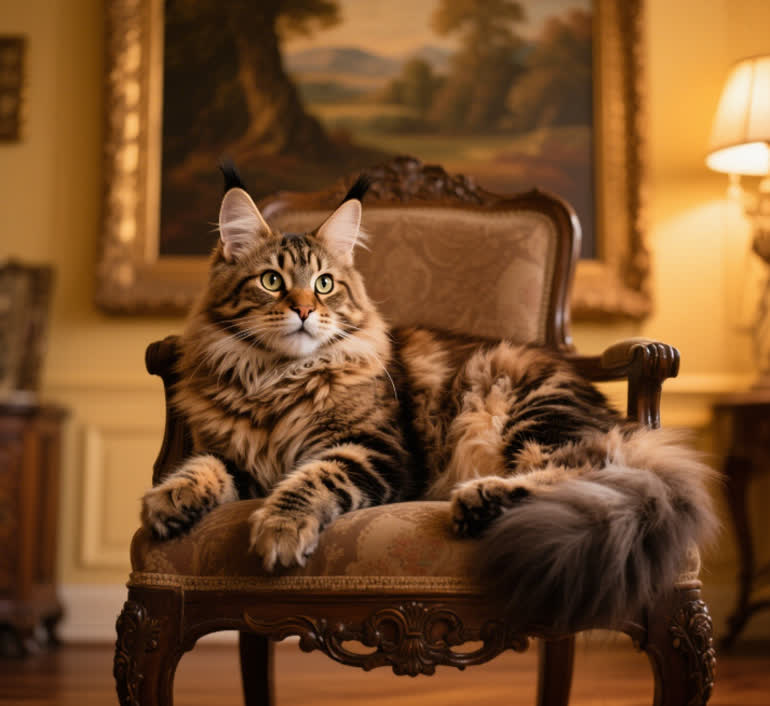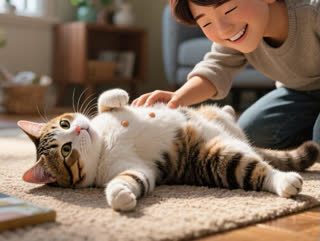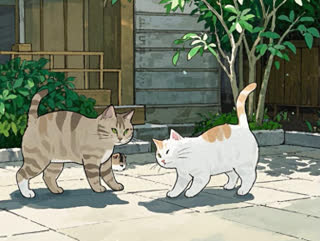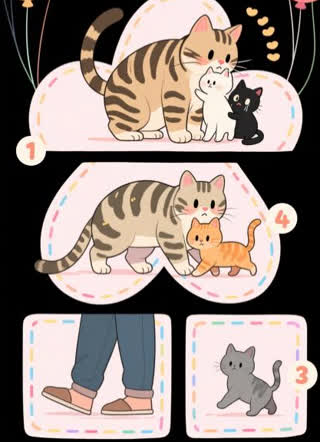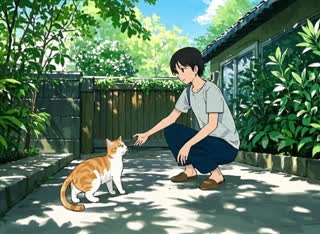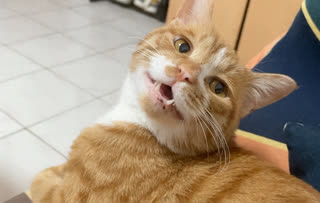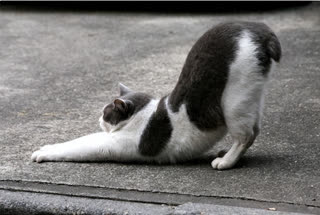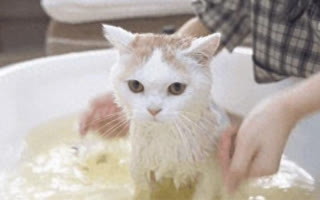Maine Coon cats are celebrated for their regal appearance, gentle demeanor, and—perhaps surprisingly—their sharp intellect. Often dubbed the "gentle giants" of the cat world, these feline companions exhibit behaviors that leave owners wondering: Just how smart are Maine Coons? And more specifically, How does their intelligence compare to human cognitive development? In this article, we’ll dive into the science of feline cognition, analyze Maine Coon-specific traits, and explore how their problem-solving, memory, and social skills align with human age equivalents. By the end, you’ll gain a deeper understanding of your Maine Coon’s brainpower and learn how to enhance their mental agility.
While cats are often seen as driven by instinct, modern research reveals a complex cognitive landscape. Studies from the University of Edinburgh and the Animal Cognition Center at the University of Georgia show that cats possess:
Episodic memory (recalling specific events, like where they found food yesterday)
Tool-use capabilities (e.g., batting objects to reach treats)
Social intelligence (reading human body language and responding to vocal cues)
Maine Coons, in particular, stand out for their adaptability and curiosity—traits linked to higher cognitive function. Unlike more solitary breeds, their history as working cats in New England barns (hunting pests and adapting to harsh climates) likely honed their problem-solving skills.
Experts caution against direct "age equivalency" charts, as cat and human brains develop differently. However, by measuring skills like problem-solving, social learning, and memory, we can draw loose comparisons:
Maine Coons excel at puzzles, such as figuring out how to open latched cabinets or retrieve toys from tricky spots. This mirrors a toddler’s trial-and-error learning phase, where curiosity drives experimentation. For example, a study observed a Maine Coon using its paws to tilt a treat-dispensing toy—a task that requires both physical dexterity and cause-effect reasoning, similar to a 2.5-year-old human.
These cats read human emotions remarkably well. They’ll head-butt a stressed owner for comfort or sit quietly beside someone ill—behaviors that demonstrate empathy and social awareness, akin to a preschooler recognizing and responding to others’ feelings. Maine Coons also learn their names quickly and distinguish between different family members’ voices, a skill comparable to a 3-year-old’s ability to understand complex verbal cues.
Cats have short-term memory spans of 16-20 minutes, much less than humans’ 20-30 minutes. However, their long-term memory for survival-related tasks (e.g., where food is stored or safe hiding spots) is exceptional. This is similar to how a young child remembers routines or beloved toys but forgets trivial details quickly.
Maine Coons are natural engineers. They’ll:
Use their large paws to manipulate objects (e.g., sliding doors open or knocking items off tables to get attention)
Strategically position themselves to observe household activity, planning their next move
Learn to "fetch" small items, a rare trait in cats that showcases both intelligence and eagerness to interact
These cats thrive in multi-pet or multi-child households, adjusting their behavior to different family members. For instance, they may play gently with toddlers but engage in more complex games (like chasing a laser pointer) with older kids. Their ability to tailor interactions reflects advanced social cognition, similar to a 4-year-old’s growing understanding of social dynamics.
Maine Coons master commands and routines quickly. They can learn:
Basic tricks like "sit," "come," or "high-five" (with patience and treats)
To associate words with actions (e.g., "dinner" means heading to their bowl)
Household rules, such as using a scratching post instead of furniture
They notice subtle changes, like a new piece of furniture or a shifted litter box, and adapt faster than less observant breeds. This awareness helps them navigate complex environments, a skill rooted in their historical role as hardy, adaptable working cats.
While all cats are intelligent, Maine Coons often rank among the top 5 smartest breeds, alongside:
Siamese (known for vocal communication and problem-solving)
Abyssinian (high energy, curious, and agile)
Burmese (social learners with strong memory)
What sets Maine Coons apart is their balance of independence and sociability. Unlike Siamese, who crave constant attention, Maine Coons solve problems on their own but also actively engage with humans, making them ideal for families seeking a cat that can both entertain itself and bond deeply.
To maximize your cat’s cognitive potential:
Invest in treat-dispensing puzzles, interactive feeders, or DIY games (hide treats in paper bags). These mimic hunting instincts and keep their minds sharp.
Use positive reinforcement (treats, praise) to teach tricks or manners. Start with simple commands, and gradually increase difficulty. Maine Coons respond well to clicker training, as they enjoy the mental challenge and bonding time.
Provide climbing trees, window perches, or cat tunnels to stimulate exploration. Rotate toys regularly to prevent boredom, as a stagnant environment can dull their curiosity.
Spend 15-20 minutes daily in interactive play (feather wands, laser pointers). Maine Coons thrive on human connection, and social engagement boosts both their mood and cognitive function.
A diet rich in omega-3 fatty acids (found in fish oil) and protein supports brain health. Consult your vet to ensure your cat’s nutrition aids cognitive performance.
While cats have different motivations (they respond better to food than praise alone), Maine Coons and other intelligent breeds can learn complex behaviors. Patience and understanding their unique drives are key.
Maine Coons are independent problem-solvers. Their intelligence allows them to entertain themselves when needed, making them suitable for owners who work long hours—provided they get quality interaction when home.
Breed, socialization, and environment significantly impact intelligence. Maine Coons, due to their genetics and history, tend to exhibit higher levels of adaptive intelligence compared to more docile breeds like Persians.
One of the breed’s most striking traits is emotional intelligence. They:
Recognize and respond to human tone (e.g., comforting a crying owner)
Adjust their behavior to different family members’ needs (e.g., being gentle with seniors)
Form deep bonds with specific individuals, often choosing a "favorite" human to protect and interact with
This emotional depth, while harder to quantify, mirrors the social awareness of a 4-5-year-old child, capable of empathy and nuanced social responses.
Owners frequently share stories of their cats’ clever antics:
Koda, a Maine Coon, learned to open the refrigerator door to steal snacks, prompting his owner to install a child lock.
Luna alerts her diabetic owner to low blood sugar by nudging their hand—a behavior she developed independently, likely from associating their physical cues with distress.
Gus solves complex puzzle feeders in under a minute, demonstrating both speed and strategic thinking.
These anecdotes highlight how Maine Coons use their intelligence not just for survival, but to engage with and adapt to their human families.
While it’s simplistic to assign a direct "human age equivalent" to Maine Coon intelligence, their problem-solving skills, social awareness, and emotional depth align roughly with the cognitive abilities of a 2-4-year-old child. More importantly, their intelligence makes them adaptable, engaging companions who thrive on mental stimulation and human connection. By understanding their cognitive strengths and providing enriching experiences, you’ll not only nurture their brainpower but also deepen the bond you share. As any Maine Coon owner will tell you: These cats may not speak, but their cleverness and heart make them feel almost human—minus the temper tantrums.
